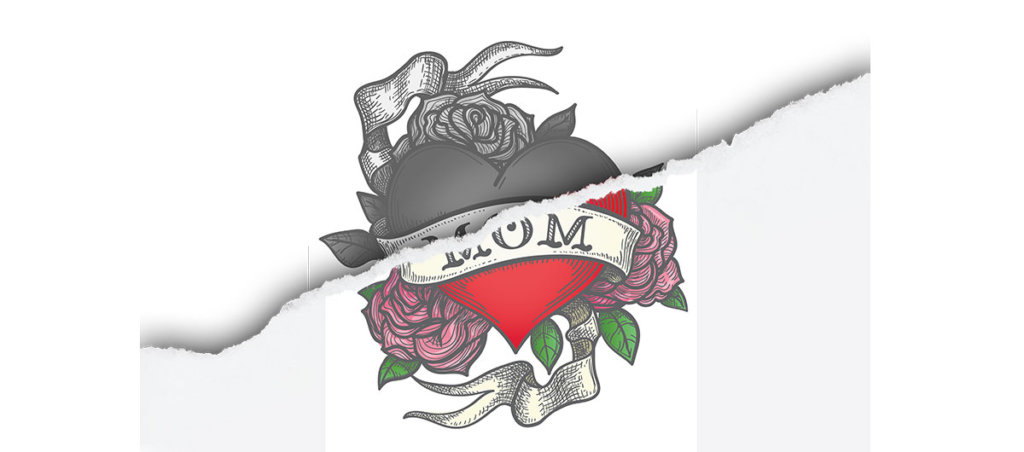Sometimes, we are born to toxic moms. But, as this writer has discovered, no matter what we do to protect ourselves, our bond with them is inescapable.
This article was made possible because of the generous support of DAME members. We urgently need your help to keep publishing. Will you contribute just $5 a month to support our journalism?
When you hate your mother, you hate yourself for it; you are convinced she doesn’t deserve to be hated. She gave you your name, after all. She gave you her wealth, her teeth, and rounded breast bone. You fear hurting her, though she is skinless, wounded by the most minor of scrapes. Yet, as your therapist points out, she is upset no matter what you do. Still, you return her “I love you” because it would be rude not to, though she never actually says it. On the phone, it’s “love you.” You know from her texts that “you” is a letter, not a word.
The problem with your mother cannot easily be distilled down to one root cause. She didn’t beat you or molest you. You weren’t neglected. And yet, there is something wrong, an instinctive prickling that occurs whenever she demands entry into your life, insisting on unfettered Facebook access. You don’t call her enough, she complains. But she never calls you, not ever. You don’t share enough of what she wants to know. But what does she want to know? When does she listen? “You never said that,” she insists. “You never told me.” But you did, you did. It’s no use, you can’t prove it and she will never believe you. Instead, every time you speak to your mother, she complains your relationship isn’t close enough. How much closer is close enough? Under your skin? She wants something that doesn’t exist, a daughter that doesn’t exist. “I appreciate you trying to be independent,” she chides. In other words, stop resisting; go limp.
Your mother can’t let you go. She is a marsupial, you the sticky blob of a fetus inside her pocket of living tissue. It’s not just that you cannot survive without her, you do not exist without her. You suffocate within that rank pouch, struggling to emerge, open your maw, breathe on your own. You realize your mother was expecting some other kind of daughter, the kind who would move to her town to be closer, not flee the country or settle on the opposite coast. She wants a daughter who will laugh at Boomer memes without noting the errors in grammar or empathy. You look around at other women and wonder which would make a more suitable daughter for your mother. Maybe a kindly teacher who wears long skirts and oversized sweaters and never raises her voice. Maybe a stay-at-home mom with a craft hobby who will bring over a casserole along with the grandchildren, the kind who huffs a strand of hair out of her face and says, “It could be worse.” Your mother likes to compare her suffering to others’. It makes her feel better to see how much easier her life is than other people’s. She loves stories of freak accidents. Abductions and murders are her favorite.
So your mother failed to create the child she wanted, the best friend she’d made herself. Instead, she got you, a snarky reader of dry texts on mythology and human history, with radical opinions about everything. She got a writer of difficult books chock-full of phalluses and masturbation scenes. She got a queer pansexual who gets carried away and crows excitedly about trans “seahorse” dads giving birth. “Does this mean you’re going to have children?” she wants to know. You sigh. Another disappointment. When your mother says she’s proud of you for publishing a book, you feel nothing. Actually, you feel anger. You’ve spent years unlearning the needs of a child: comfort, approval, safety. Yet somehow, she’s on-stage alone, performing her role in the play that’s been canceled. I don’t need your approval, you want to tell her. Instead, you give her credit in the acknowledgments so she won’t dissect the book, looking for evidence of herself, then send you a rambling text full of accusations. Your writing, you decide, will be the one thing she cannot claim.
You don’t ask yourself what kind of mother you would have chosen, given the chance. That thought only opens the maw of grief. Instead, you admire Fran Lebowitz. In college, you garner the support of a brilliant femme godmother, who later becomes a contestant on Jeopardy! Older teachers joke about adopting you, ply you with hugs and wine. A friend who’s younger than you calls herself your “mama.”
You know the hatred you feel isn’t hatred at all but a longing for escape. You have shed toxic boyfriends and girlfriends, a nuclear waste dump of a husband. You’ve grown like a night-blooming flower planted in shit. And yet, this is the relationship you cannot escape. Till death do you part. Except, if she dies first, she will still live forever in your mind, fomenting guilt and shame.
Someday she will read this. For once, she will be right that it is “about her.” She will cry, hurl accusations. Once you didn’t speak to her for a few months and she told you you’d hurt her more than anyone in her whole life. More than the parents who abused and neglected her, more than the husband who made her life hell in the end. That statement stung, a sliver under the skin that will never come out. You know it isn’t true, that of all those people, you are the one who has cared about her the most. But you are also the only one she can punish, the only one subject to her rule. And that is why she will never let you go.
